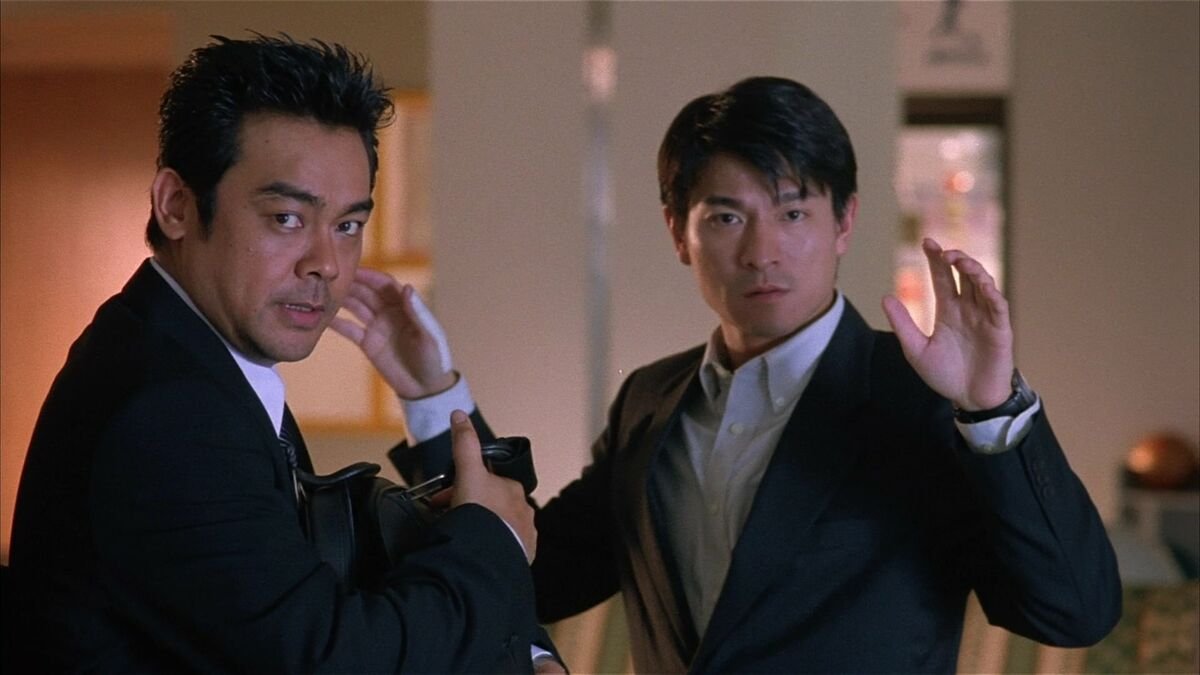Review: The Fast and the Furious (2001)
Maybe I’ve grown nostalgic and soft after all these years, but the trashy sheen and macho posturing of the original The Fast and the Furious doesn’t seem so bad 20 years later. In fact, this blatant rip-off of Point Break (1991), which plays nearly identically to Kathryn Bigelow’s action classic for the first third of the film, holds up pretty decently. Not to say that director Rob Cohen is some kind of poor man’s Michael Bay—he doesn’t have Bay’s astounding visual style to compensate for the sleaze—but this racing action flick does have its charms, not least of which is the star power of Vin Diesel.
As the follow-up to his beguiling turn in the sci-fi B-movie throwback, Pitch Black (2000), Diesel plays Dominic Toretto, iconic street racer and, probably (read: definitely), the heist mastermind that the late Paul Walker’s surfer-doofus undercover cop, Brian O’Conner, is investigating. As in Pitch Black, Diesel plays into the contradictions of his physique and demeanour. His chiselled body and rumbling bass voice make him appear to be a classic action movie heavy. When we first see him, he’s obscured by a fortified cage in the back of his bodega, going about his mysterious business as Walker’s Brian flirts with his sister, Mia (Jordana Brewster). He’s intimidating and mysterious—Cohen’s curious, but distant camera makes it clear that everything in this world revolves around him right from the get-go.
But as Brian meets Dom and gets in with his crew, Diesel’s performance doesn’t match the typical genre approach. He conveys an aloof intelligence and charisma beyond his intimidating looks. He’ll drop a one-liner or moment of sentimentalism that’ll catch you off guard, such as his heartfelt speech about losing his dad and assaulting the man who accidentally killed him, but there’s nothing winking or cynical in the way he plays these moments. He appears authentic, heartfelt, and most importantly, guarded in the way he plays his emotional arc, which is distinct from the approach of contemporary equivalents like Idris Elba or Dwayne Johnson (who would join the series in later entries). Perhaps it’s inevitable that the Fast & Furious series would eventually turn into a goofy ode to family, because Diesel channels such loyal warmth as the series lead.
Diesel and to a lesser-extent Walker, who can’t act for shit but does have affable mimbo-energy, provide the film with its charms, while the muscular filmmaking from Cohen and the impressive stunt work does the rest. The Fast and the Furious is packed with street races throughout its entire runtime and most of them are fairly exciting as far as racing scenes go. True, Cohen does shake the camera too much to approximate velocity and pack the film full of garish CGI-shots of NOS (nitrous oxide system) tanks activating and blasting the cars off at incredible speeds. But the sheer speed of the races and their variety throughout the film provide momentum and escalation. The race scenes make you understand why the film was a huge hit at the box office, spawned a long-running franchise, and sparked a pop-culture obsession with street racing and NOS.
The early race where Brian almost beats Dom and ingratiates himself to Dom’s crew captures Walker’s likeable energy and helps you to appreciate the excitement of street racing, both through the filmmaking and by experiencing the race vicariously through Walker. After the race, Walker’s delivery of the line “Dude, I almost had you” through his big goofy smile is the earnest encapsulation of this joyous rush the film has for racing. The climax in the desert where Brian has to save Dom and his crew from the armed driver they’re trying to rip off is also thrilling, a dusty, high-stakes showdown featuring skilled stunt driving and plenty of eviscerated cars. The practical nature of the sequence, with real cars and real stunt drivers, is all the more exciting in retrospect when placed against the stakes-free extravaganzas of modern Hollywood (of which the later entries in the series are prime examples).
So maybe it is just nostalgia after all that makes The Fast and the Furious work so well two decades later; the physicality and weight of the functional action scenes and the enthusiasm of a pre-9/11 Hollywood feels like a respite after the deadening weightlessness and incoherence of contemporary CGI spectacle. Or maybe an action film based on the enigmatic charisma of Vin Diesel and goofy likability of Paul Walker simply works, regardless of the shifts in action filmmaking over the years. Whatever the case, there’s an argument to be made for the film’s worth, even apart from the mammoth franchise that it spawned.
6 out of 10
The Fast and the Furious (2001, USA)
Directed by Rob Cohen; written by Gary Scott Thompson, Erik Bergquist, and David Ayer, based on a story by Gary Scott Thompson, based on the article “Racer X” by Ken Li; starring Paul Walker, Vin Diesel, Michelle Rodriguez, Jordana Brewster, Rick Yune, Chad Lindberg, Johnny Strong, Ted Levine.



George More O’Farrell’s The Holly and the Ivy is a perceptive Christmas drama that deserves a place in the Christmas rotation.